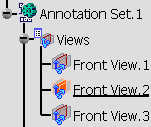You can add links to models, products and parts as well as to any constituent elements.
- Flag note with Leader
- Flag note
You can set graphic properties (anchor point, text size and justification) either before or after you create the free text.
See Setting Basic Graphical Properties.
You can change any flag note to another kind at any time.
You can specify a hidden text to the flag note.
-
Select the face as shown to define a location for the arrow end of the leader.
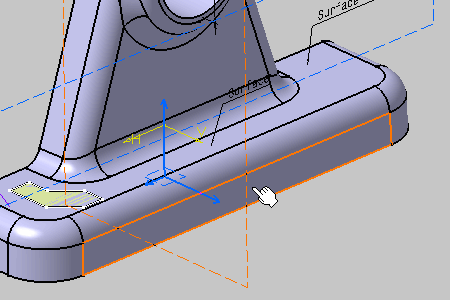
- This scenario illustrates the creation of a flag note by selecting geometry, but you can also select any Part Design or Generative Shape Design feature in the specification tree. In this case, the created annotation will not be attached to the selected feature, but to its geometrical elements at the highest level.
- If the active view is not valid, a message appears informing you that
you cannot use the active view.
Therefore, the application is going to display the annotation in an annotation plane normal to the selected face.
For more information, see View/Annotation Planes.
-
The Flag Note Definition dialog box appears.
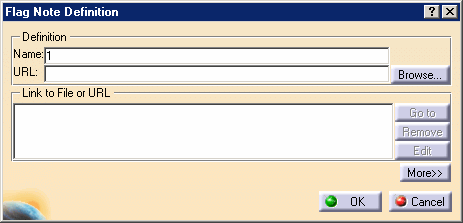
- You may specify the flag note's name link in the Name field.
- You may specify one or several links associated with the flag note in the URL field clicking the Browse... button.
- In the Link to File or URL list you can see the
list of links:
- To activate one of them, select it and click the Go to button.
- To remove one of them, select it and click the Remove button.
- To edit one of them, select it and click the Edit button.
- Clicking the More > > button lets you define a hidden
text which is displayed with the list of links in a tooltip when the
mouse pointer stays on the flagnote
- You can write your text or import it from a text file.
- You can leave the field blank.
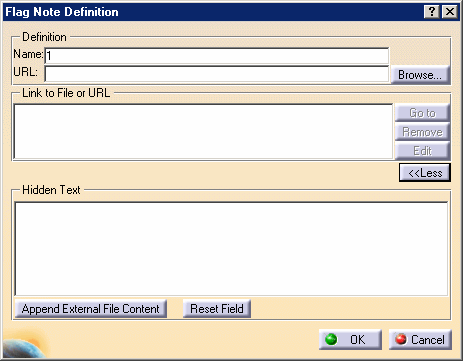

-
Define the flag note:
- the name: New Annotation
- a link: www.3ds.com
- a hidden text: Go to the world of 3DS
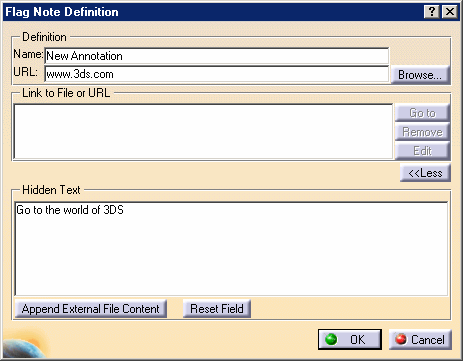
-
Click OK to end the flag note creation. You can click anywhere in the geometry area too.
The flag note appears in the geometry, the tooltip containing the URL and the hidden text is displayed when the mouse pointer stays on the flag note. 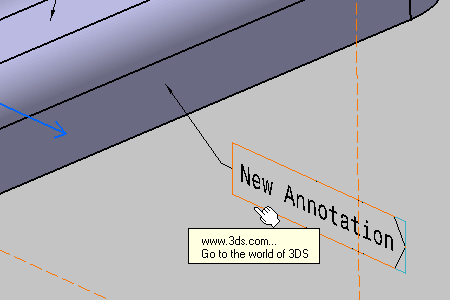
The leader is associated with the element you selected. If you move either the text or the element, the leader stretches to maintain its association with the element. Moreover, if you change the element associated with the leader, the associativity between the element and the leader is kept.

- The Text Properties toolbar lets you define the anchor point, text size and justification.
- You must have activated the 3D Annotations query to visualize the tooltip.
-
Select the face as shown.
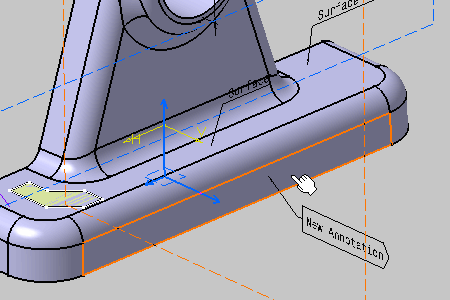
-
Enter your flag note name, for example "New Annotation 2" in the dialog box, specify a link and click OK.
The flag note appears in the geometry. 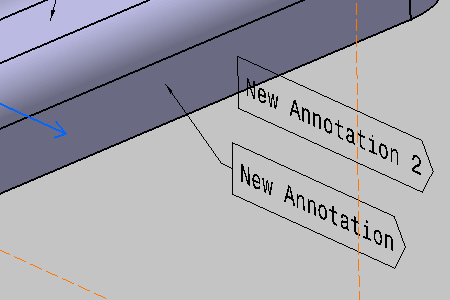
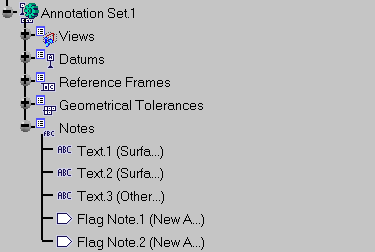
You can move a flag note using the drag capability. See Moving Annotations.
Note also that you can resize the manipulators. For more information, refer to Customizing for 3D Functional Tolerancing & Annotations.
